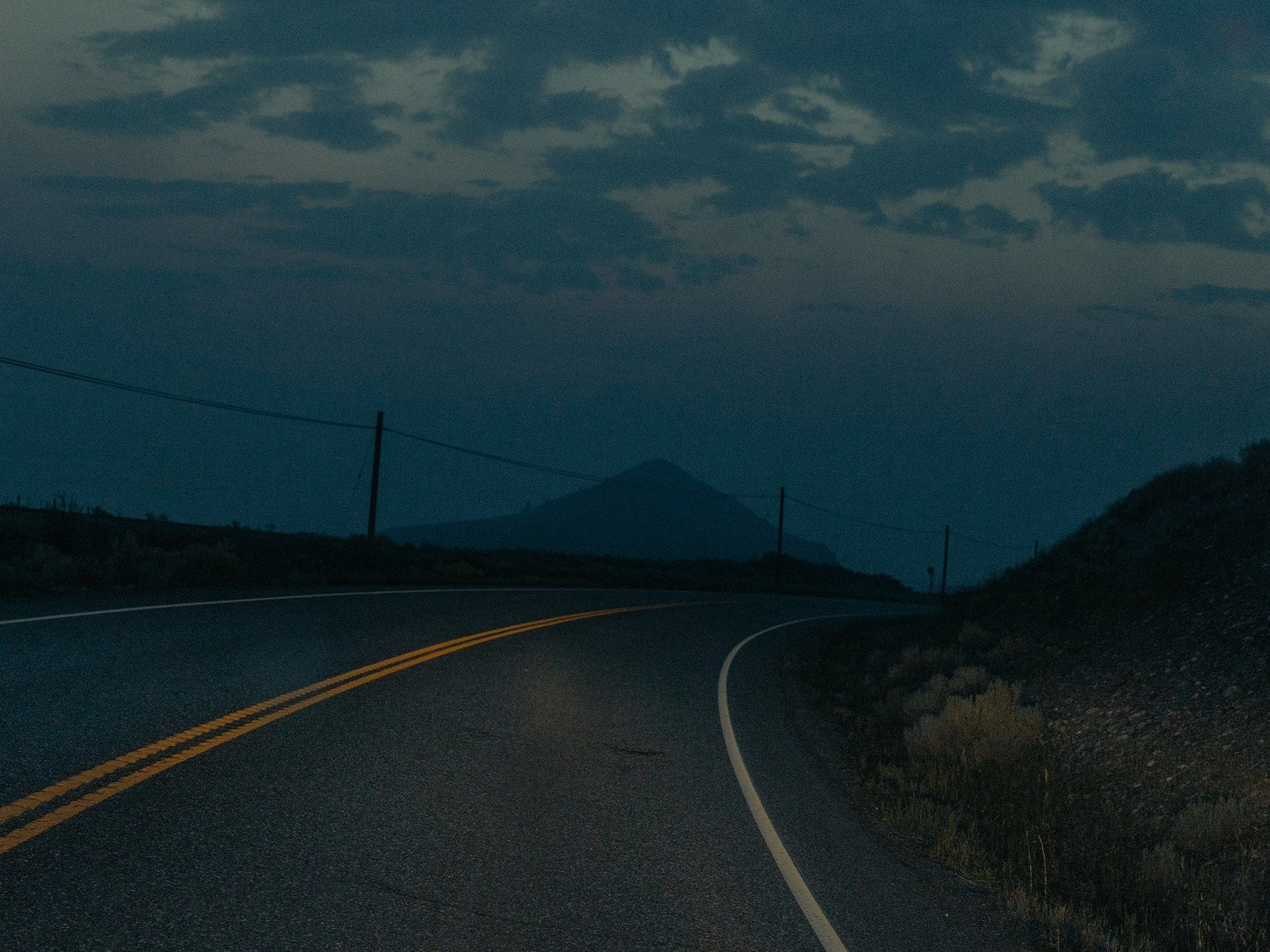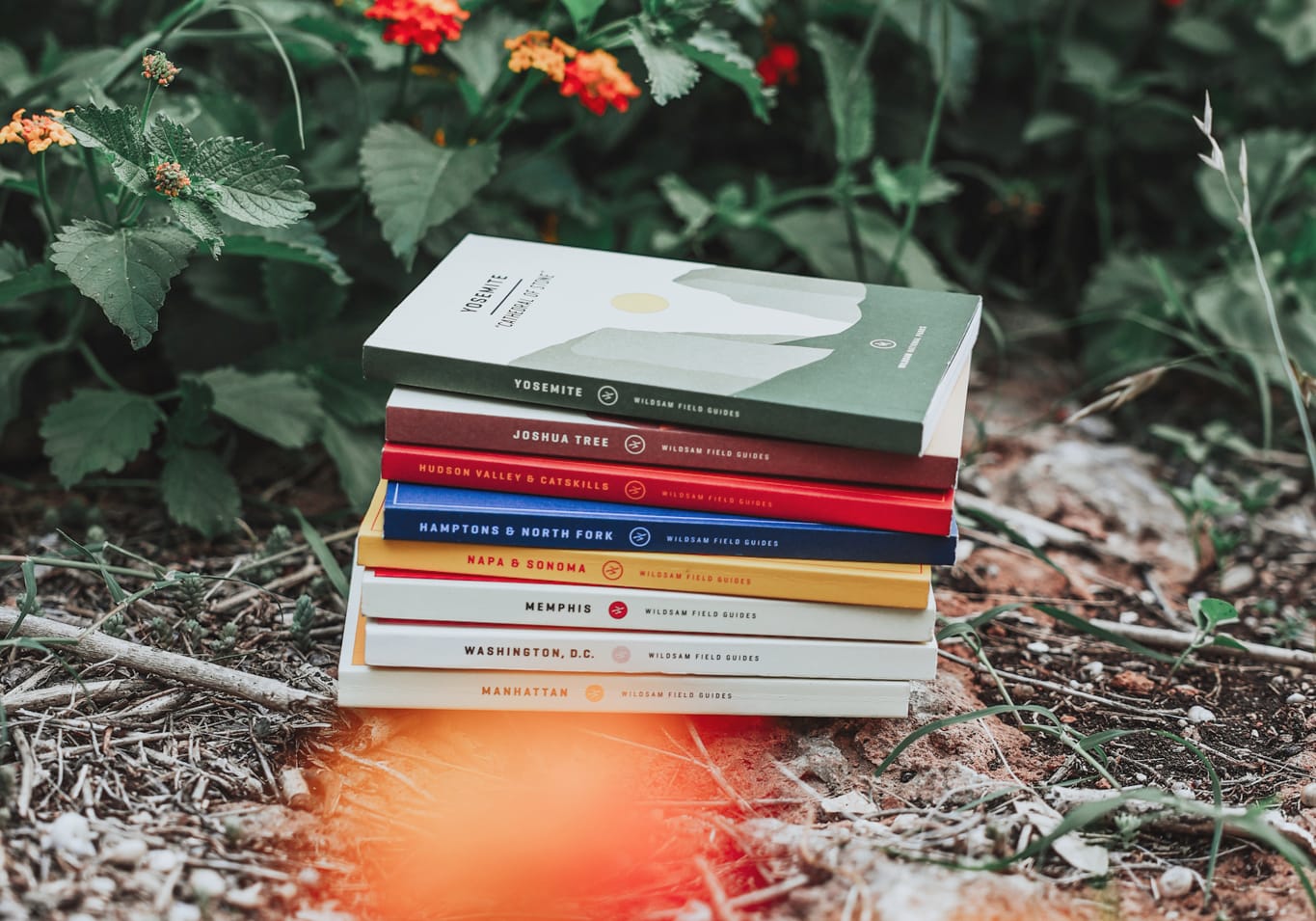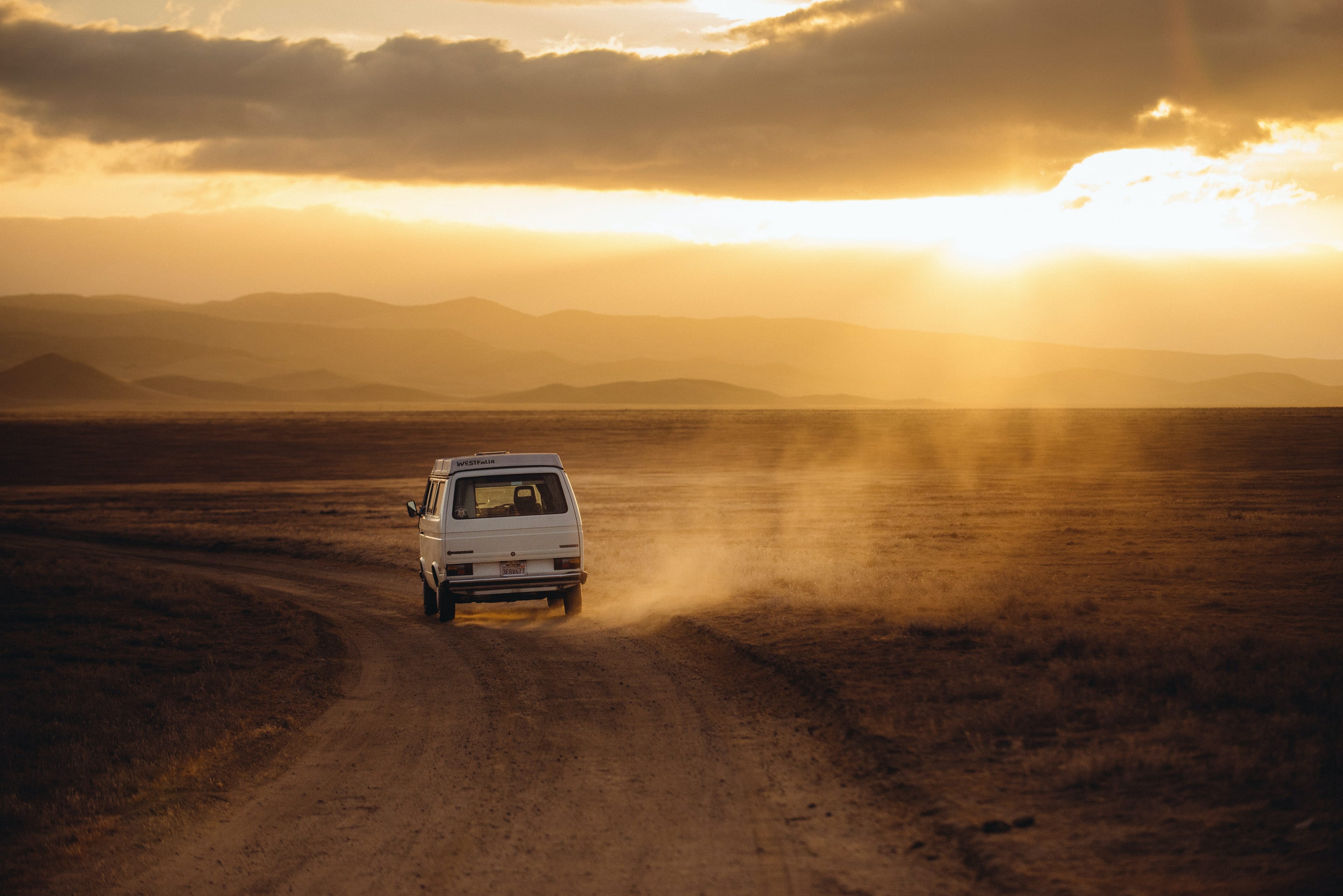How Fitz and Becca Cahall Became A Podcasting Power Couple

Becca and Fitz Cahall on an everyday adventure, trail riding near their Seattle home base.
Podcasts, films, a book: the outdoorsy couple behind Dirtbag Diaries does it all.
Early in their relationship in the early aughts, Fitz and Becca Cahall were often on the move, or thinking about it. Becca was a field biologist, doing seasonal work counting songbirds in the West. Fitz was a freelance travel and adventure writer. They also spent a lot of time traveling to climbing spots in a DIY contraption that Fitz once described as “an extremely low- ceilinged mobile home.”
“It was, like, plywood,” Becca remembers. “It was a 1993—”
“Toyota pickup,” they say in unison.
Their days often ended in a makeshift portaledge, drinking warm beer. It was the kind of memory that came to Becca’s mind sitting at their kitchen table in 2010, pondering names for their growing storytelling studio, an umbrella identity that would encompass all their projects: outdoor films, Fitz’s increasingly successful podcast about the human side of adventure, The Dirtbag Diaries, and more.
Half-jokingly, Becca suggested naming the company after the two items that got every venture to the finish line. “On every project we have to use duct tape, 'cause that’s how you get through it,” she says. “And then the beer is the celebration at the end.”
THE WILDSAM QUESTIONNAIRE
GAS STATION SNACK OF CHOICE?
Fitz: Potato chips and a Mexican Coca-Cola. Becca: Black licorice and root beer.
BEST START TO THE DAY?
Fitz: Waking up in the parking lot of a ski resort after it's snowed a foot overnight.
Becca: Waking up in a tent.
MOUNTAIN? DESERT? SEA?
Fitz: Forest. Becca: Mountain.
The name, Duct Tape Then Beer, now adorns colorful posters and fan mail pinned to a closet-like recording booth in their Seattle office. Nearly two decades since the first Diaries episode, the Cahalls are in a reflective place. In July, the book States of Adventure hit the market, a collection of photographs and stories written by Fitz, with an intro by climber Alex Honnold. The book revisits many adventures shared on Dirtbag Diaries, which often touch on deeper themes like mental health, mentorship and grief. This combination is what earned the show a devoted following. But in the beginning, it felt like a gamble.

In 2007, frustrated by shrinking freelance writing rates and spotty interest in the types of scrappy adventure stories he loved, Fitz got to thinking about the digital communities forming around all conceivable niche interests. Maybe he could share stories on these nascent online platforms. “I thought, if it’s the last thing I do in this chapter of my career, that’s totally fine,” he remembers.
That March, he emailed about 30 good friends the first podcast episode of The Dirtbag Diaries, in which he mused on what it means to be a “dirtbag”—a term proudly adopted by wandering climbers and other outdoor enthusiasts—and interviewed his landlord about monoboarding. In a couple days, hundreds had listened to it, and not long after that, thousands. “In those first six weeks of the show, I knew my life had changed,” Fitz says. The total number of downloads, across all episodes, has surpassed 35 million.
Becca helped out in her time off as the show grew, discovering a knack for managing everything from photo shoots to admin. “I often felt that film projects were very similar to running research projects,” she says. She joined full-time after she graduated amid the 2008 recession and unstable science research funding. Soon they were working with a network of collaborators and brands like Outdoor Research, and producing festival favorites like “The Road from Karakol,” a 25-minute film about a solo biking and climbing trip through Kyrgyzstan.
Through it all, the Cahalls have remained almost uncannily complementary as business and life partners. Fitz likens working together to a love story. “This sounds so cheesy. Becca’s gonna blush,” he says. “But it’s two people who have a steadiness, have been able to disagree and compromise and listen to the other person. It’s a reflection of our relationship.”
Starting in 2014, the Cahalls began raising awareness about the region that would become Bears Ears National Monument in Utah. They created a campaign with Patagonia and Google, using film and virtual reality, and eventually raised money to create the on-site Bears Ears Education Center. It was a culmination of the skills they’d built over many years: “We could figure out some really experimental technology,” Fitz says. “Climb a tower with Tommy Caldwell, fly a drone with a VR camera and package it in a way that has heart and meaning.”
As the Cahalls think about the future, their focus remains constant: “We don’t want to forget the roots of where we came from, which is people trying to do difficult things,” Fitz says. For them, this often means creating new things—podcasts, films, a company—without assurance of success.
Summing up where they are now, Becca returns to a metaphor best suited for a Toyota pickup: “You’ve passed a lot of mile markers, but you're still looking ahead to see what's down the road. And you're just hoping your vehicle gets you there.”






